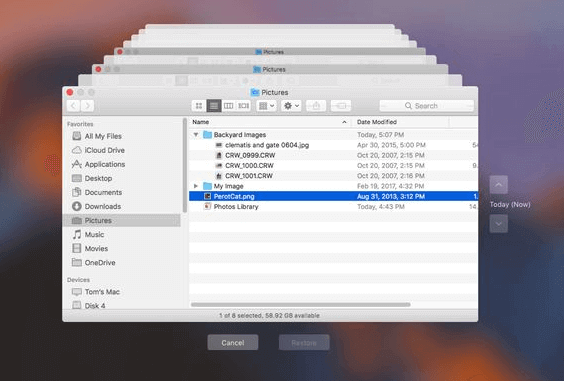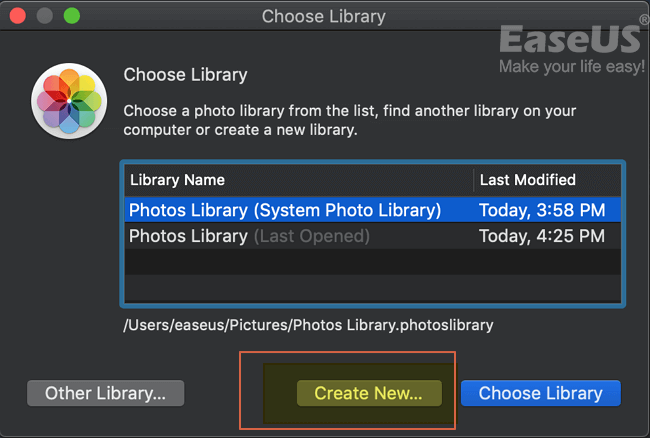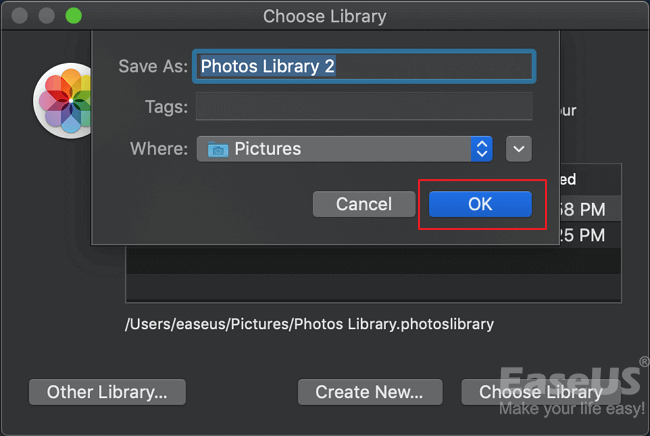Repair Photos Library and Recover Lost Photos on Mac
Applies to all new macOS: 10.15 (Catalina), 10.14(Mojave), 10.13 (High Sierra), 10.12, and old Mac OS X like 10.11 (El Capitan), 10.9, etc.
The article provides full solutions to recover photos after Photos Library corruption and fix the corrupted Photos Library:
| Workable Solutions | Step-by-step Troubleshooting |
|---|---|
| Part 1. Recover lost photos after Photos Library corruption |
Fix 1. Restore lost photos with Qiling Mac data recovery software in three steps...Full steps |
| Part 2. Repair corrupted Photos Library |
Step 1. Close Photo Library if it's opened. |
Photos Library corrupted, help me restore my photos, please.
"Hi there, can anyone of you tell me how to restore my lost photos on Mac? The Photos Library corrupted suddenly. All my photos stored in the Photos Library all disappeared. What can I do?
Please help me. And this is important for me to recover photos. Any solutions or suggestions are all welcomed."
How many of you guys are facing Photos Library crash or corrupt problem and unable to restore photos? Here Qiling software provides effective methods to prevent similar problems from happening again, follow to repair Photos Library, and recover all photos on Mac immediately.
Tip: Back up photos in case of losing them
If you didn't lose photos, the best choice is to backup them first. When unexpected troubles happen to your photos, you'll still have the backups. Here we recommend you to use Time Machine to backup all important photos and other data on Mac:
1. Click Time Machine and choose Set Up Time Machine.
2. Click Select Backup Disk or select locations (an external storage device is preferable) back up photos, and then click Use for Backup.
You can also copy photos and files one by one and paste them to another storage device where you want to store the backups. Be patient and careful while copying and pasting.
Part 1. Recover lost photos after photos library corruption
If photos lost due to Photos application or Photos Library corruption, you have two ways to restore the lost photos: 1. Restore lost photos with Mac data recovery software; 2. Retrieve Photos Library with photos from Times Machine backup.
Method 1. Restore lost photos with Qiling Mac data recovery software
If you didn't create a backup of Photos Library in the Time Machine, you'll need Mac data recovery software to help. We recommend you try Deep Data Recovery for Mac which supports recovering photos from corrupted Photo Library and even worse situations.
Step 1. Launch Qiling file recovery software on your Windows computer. Select file types and click "Next" to start.

Step 2. Hover the mouse over the system drive where the Photos Library is, and click "Scan".

Step 3. After finishing the scan, click "Photos" in Quick Access. All your lost photos will list here.

Step 4. Double-click to preview the photo, select the right one and click "Recover" to save the photos to another secure location on Mac.
Method 2. Restore corrupted Photos Library with photos from Time Machine backup
If you've created a backup of Photos Library with Time Machine, follow the steps below to restore Photos Library and all lost photos:
1. Connect Time Machine backup drive.
2. Click Time Machine in the Dock and enter Time Machine
3. Find backups - your photos then click Restore to recover lost photos.

Part 2. Repair corrupted Photos Library
If the Photos behaves unexpectedly or Photos Library corrupts, follow the next steps to start repairing Photos Library with Photos library repair tool:
Step 1. Close Photo Library if it's opened.
Step 2. Relaunch Photo Library by holding Command + Option key.
Step 3. Click "Repair" when the "Repair Library" dialog pops up and asks whether you'd like to repair the library.

You might be asked to enter your account and password to authorize the library repair. And the Repair tool will analyze the database of Photos Library, repair detected errors.
If your Photos library is automatically updated with iCloud Photos, the entire contents of the library will re-updates with iCloud when the repair process completes.
Bonus Tip: Create a new Photos Library
The other alternative way to repair the corrupted Photos Library is to create a new Photos Library on Mac. By doing so, you'll have your Photo Library back and reuse it to edit your photos again:
Step 1. Hold the Option key and double-click the Photos icon in the Applications folder (or click the Photos icon in the Dock).
Step 2. In the Choose Library dialogue, click Create New.

Step 3. Type a library name and choose a location to store the library. Click OK to confirm.

Related Articles
- Recover Deleted Files Mac Terminal and Better Alternatives
- PowerPoint Recovery on Mac: Recover Lost/Unsaved PPT Files
- How to Recover Deleted Emails on Mac?
- Solved: USB Flash Drive Not Showing Up on Mac